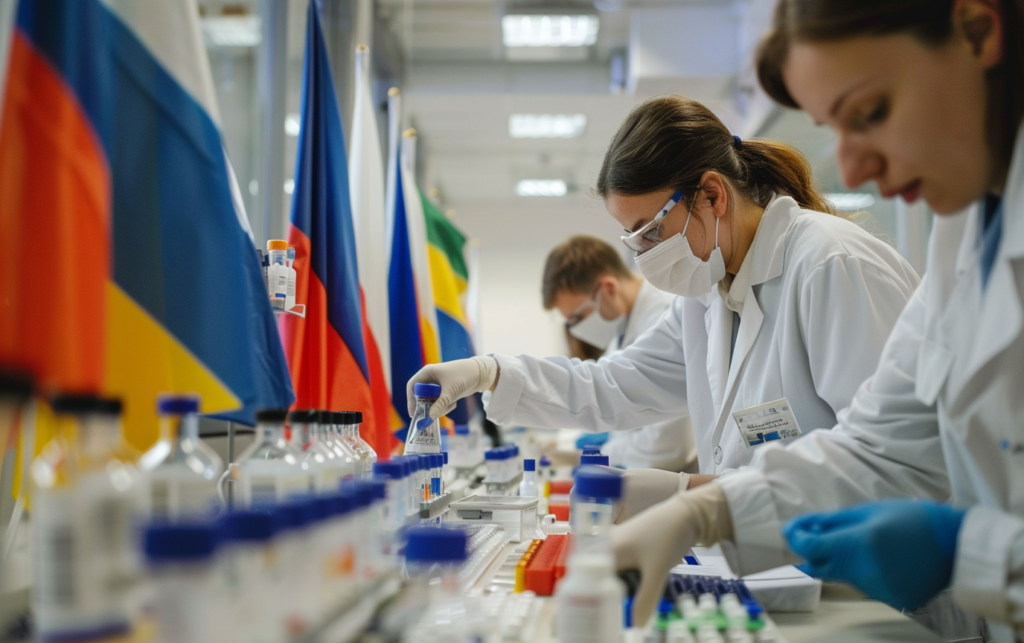

The Council of the Eurasian Economic Commission (EEC) has taken a significant step towards harmonizing the pharmaceutical regulatory landscape across the Eurasian Economic Union (EAEU) member states.
In a recent decision taken on 12 April 2024, the EEC Council supplemented Decision No. 83 dated 03.11.2016 with the Rules for conducting pharmaceutical inspections to ensure compliance with the EAEU’s Good Pharmacovigilance Practice (GVP) requirements.
This move aims to establish a unified approach to inspecting the pharmacovigilance systems of marketing authorization holders (MAHs) for medicinal products.
 Addressing Inconsistencies and Duplication in Pharmacovigilance Inspections
Addressing Inconsistencies and Duplication in Pharmacovigilance Inspections
Until now, the EAEU member states have been conducting pharmacovigilance system inspections based on their respective national legislation.
This has led to variations in inspection approaches and potential non-recognition of inspection results across individual EAEU countries.
The lack of a harmonized framework has also resulted in MAHs being subjected to repeated inspections by different inspectorates within the EAEU.
Eliminating the Need for Duplicate PVG Inspections
The newly adopted rules address these issues by providing a standardized procedure for pharmacovigilance inspections and fostering cooperation among the authorized bodies of the member states.
I have not been able to find a copy of the official decision by the Council, but hopefully all will go as reported.
This development will not only streamline the inspection process but also eliminate the need for duplicate inspections, saving time and resources for both regulators and MAHs.
William Wickham, CEO at Delta Medical, commented that “These changes should positively impact our pharmacovigilance activities in the EAEU. Our international pharmaceutical company partners are often confused by these duplicative inspections.”
Aligning with European Standards
The EEC Council’s decision to harmonize the rules for pharmaceutical inspections of pharmacovigilance systems with the current version of the European rules is a strategic move.
Ensuring Safety and Efficacy of Medicines
By aligning with the European standards, the EAEU demonstrates its commitment to ensuring the safety and efficacy of medicines circulating within its pharmaceutical market.
Facilitating Recognition of Inspection Results
This alignment also facilitates the recognition of inspection results and the exchange of information between the EAEU and European regulatory authorities.
Safeguarding Public Health
Maintaining Circulation of Medicines with Proven Positive Benefit-Risk Profile
Valentin Tataritsky, Minister in charge of Technical Regulation of the EEC, emphasized the importance of these amendments in maintaining the circulation of medicines with a proven positive benefit-risk profile in the EAEU pharmaceutical market.
Excluding Medicines that Pose a Threat to Public Health
The unified inspection rules will enable the exclusion of medicines that pose a threat to public health and well-being from circulation and production. This proactive approach demonstrates the EAEU’s dedication to prioritizing patient safety and ensuring access to high-quality medicines.

Challenges and Future Prospects
Slow Progress in Mutual Recognition of Dossiers
Despite the progress made with the adoption of uniform rules for pharmacovigilance inspections, challenges remain in the EAEU’s pharmaceutical regulatory landscape.
The EAEU register of medicines currently accounts for approximately 20% of the Russian State Register of Medicinal Products (GRLS) in terms of the number of issued registration certificates.
However, mutual recognition of dossiers by other EAEU states is even slower, with just over 1% of the entire EAEU register achieving this status.
Overcoming Discrepancies in Interpretation of Legal Requirements
Differences in the interpretation of legal requirements among the reference state and the countries of recognition often lead to discrepancies that manufacturers only discover upon receiving a refusal to approve the registration dossier by the regulatory authority of the state of recognition.
Overcoming these hurdles will require continued efforts to harmonize regulatory requirements and improve communication between the EAEU member states.
Working Towards a More Integrated and Efficient Pharmaceutical Regulatory System
As the EAEU continues to work towards a more integrated and efficient pharmaceutical regulatory system, the adoption of uniform rules for pharmacovigilance inspections marks a significant milestone.
By promoting consistency, eliminating duplication, and aligning with European standards, the EAEU is taking strides to ensure the safety and quality of medicines for its population while fostering a more conducive environment for the pharmaceutical industry.
Background Information and Frequently Asked Questions
What is the Eurasian Economic Union (EAEU)?
The Eurasian Economic Union (EAEU) is an international organization for regional economic integration, established by the Treaty on the Eurasian Economic Union on May 29, 2014.
The EAEU aims to create a single market for goods, services, capital, and labor, and to promote economic cooperation and coordination among its member states.
Which countries are members of the EAEU?
What is the role of the Eurasian Economic Commission (EEC)?
The Eurasian Economic Commission (EEC) is the permanent regulatory body of the EAEU.
It is responsible for ensuring the functioning and development of the EAEU, as well as overseeing the implementation of the EAEU Treaty and other international agreements within the EAEU.
How does the EEC Council make decisions?
The EEC Council consists of the Deputy Prime Ministers of the EAEU member states. Decisions are made by consensus, with each member state having one vote.
The Council’s main tasks include approving the draft budget, determining the areas of integration, and resolving disputes among member states.
Can other countries join the EAEU?
Yes, other countries can join the EAEU if they share its goals and principles, and if they are willing to comply with the EAEU Treaty and other international agreements within the EAEU.
Interested countries must submit an official application to the EEC, which will then be considered by the Supreme Eurasian Economic Council, the highest body of the EAEU.
How does the adoption of uniform rules for pharmacovigilance inspections contribute to the goals of the EAEU?
The adoption of uniform rules for pharmacovigilance inspections is a significant step towards harmonizing the pharmaceutical regulatory landscape within the EAEU.
This contributes to the EAEU’s goals of creating a single market for goods and services, promoting economic cooperation, and ensuring the safety and quality of medicines for its population.
What impact will the adoption of uniform rules have on pharmaceutical companies operating in the EAEU?
The adoption of uniform rules will provide a more predictable and consistent regulatory environment for pharmaceutical companies operating in the EAEU.
It will reduce the burden of duplicate inspections, streamline the inspection process, and facilitate the recognition of inspection results across EAEU member states, ultimately benefiting both the industry and patients.




